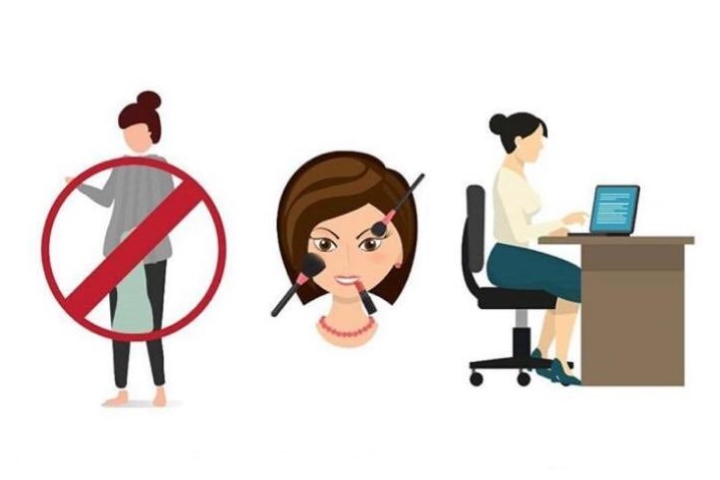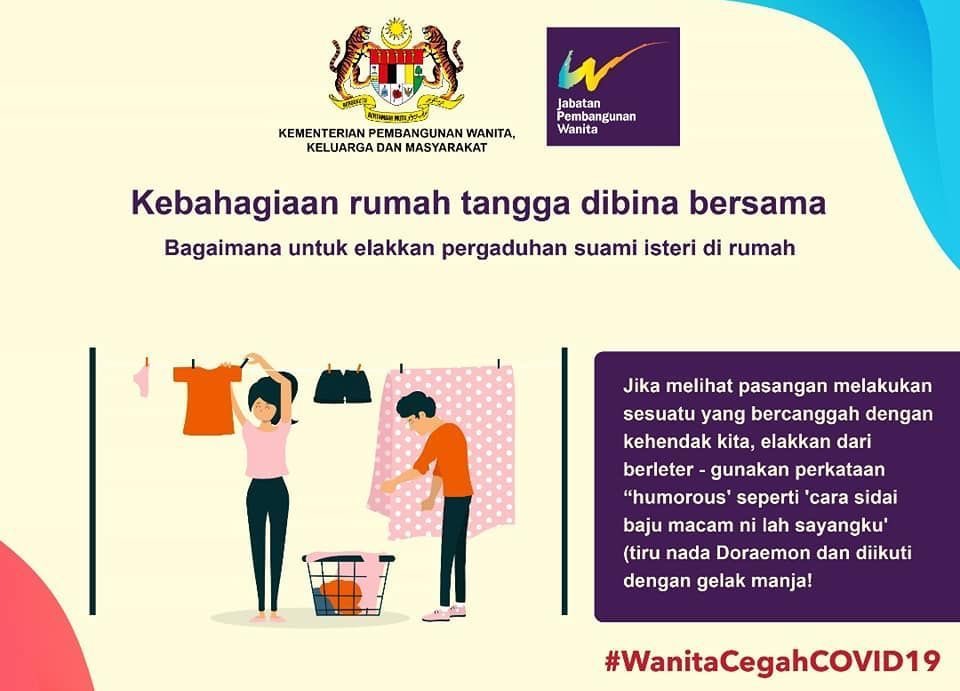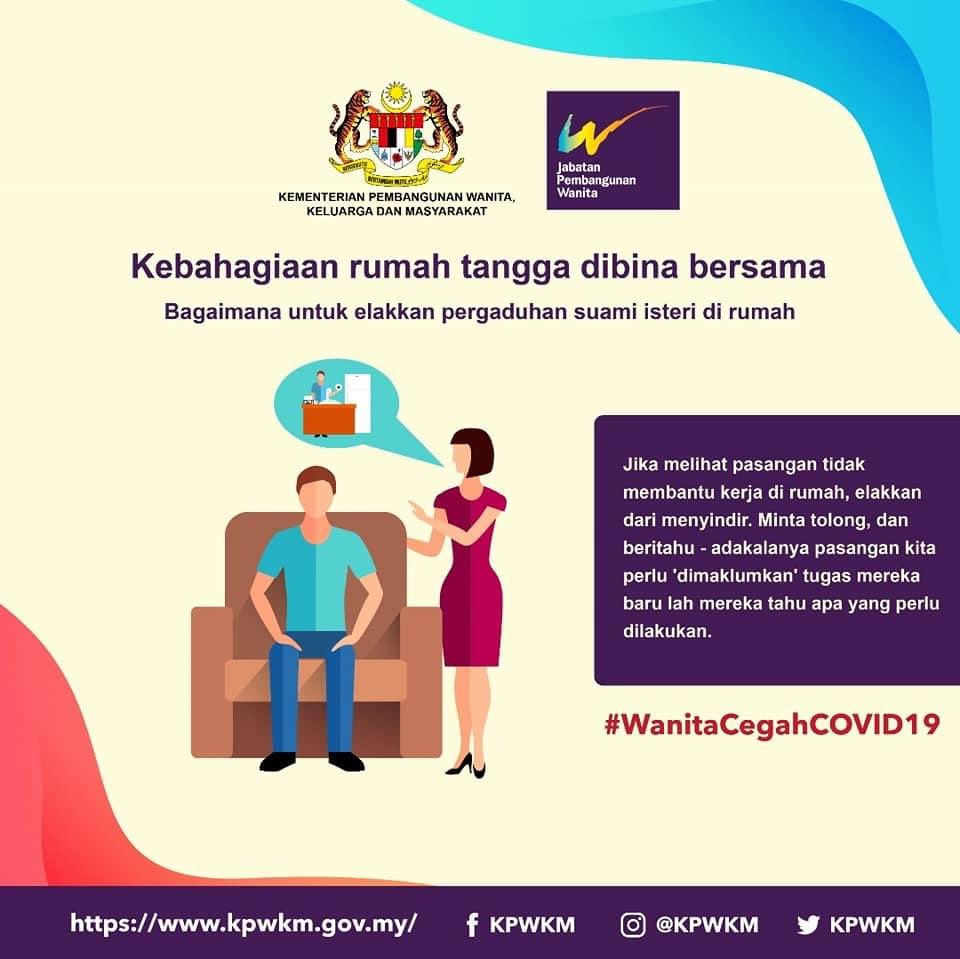Malaysia’s ministry for women has apologized for telling women to dress up and keep their voices down for their husbands during the coronavirus lockdown following intense online backlash against a series of animated posters.

The outcry erupted after Malaysia’s Ministry of Women, Family and Community Development (KPWKM) posted several graphics online as part of a social media campaign to avoid domestic conflicts during the partial lockdown.
Several of the graphics included advice for women under the slogan “Women prevent COVID-19,” although the tips seem more focused on pleasing a husband, not preventing a disease.
One poster encouraged women to dress up and put on makeup “as usual” during the lockdown and explicitly told them not to wear “home clothes.”
Another poster encourages women to use a silly voice or imitate Doraemon, a popular anime cat character, instead of nagging about chores.
A third graphic shows a man sitting on the couch while asking his wife not to be “sarcastic” about the household chores.
Critics accused the KPWKM of ignoring the real problems women can face during a coronavirus lockdown, such as domestic violence from a partner. Many women’s groups have warned that lockdowns could lead to a spike in such incidents, and they’ve been calling for concrete solutions to help women at risk.

Get breaking National news
Domestic violence hotlines in Malaysia have seen a spike in calls since the country went into partial lockdown on March 18, local media reports.
“How did we go from preventing baby dumping, fighting domestic violence to some sad variant of the Obedient Wives Club?” Twitter user Yin Shao Loong wrote.
“The KPWKM is really out here telling us to gently tell our husbands how to do housework like Doraemon,” user Deborah Augustin wrote. “I could never in a million years make this up.”
“(It) is extremely condescending both to women and men,” said Nisha Sabanayagam, a manager at All Women’s Action Society, a Malaysian advocacy group.
“These posters promote the concept of gender inequality and perpetuate the concept of patriarchy,” she told Reuters.
The ministry deleted the controversial posts and apologized following the outcry.
“We apologize if some of the tips we shared were inappropriate and touched on the sensitivities of some parties,” the ministry’s women development department said in a statement.
Several users fired back at the government with posts that mocked Doraemon, the cartoon cat whose voice women were told to imitate.
“My super-heroine wife can do whatever she wants,” one user wrote, along with a photo of his partner at a clinic.
“She’s a doctor on the front lines and no, she never needs to make herself sound like Doraemon to make sure she’s heard.”
—
Questions about COVID-19? Here are some things you need to know:
Health officials caution against all international travel. Returning travellers are asked to self-isolate for 14 days in case they develop symptoms and to prevent spreading the virus to others.
Symptoms can include fever, cough and difficulty breathing — very similar to a cold or flu. Some people can develop a more severe illness. People most at risk of this include older adults and people with severe chronic medical conditions like heart, lung or kidney disease. If you develop symptoms, contact public health authorities.
To prevent the virus from spreading, experts recommend frequent handwashing and coughing into your sleeve. And if you get sick, stay at home.
For full COVID-19 coverage from Global News, click here.
— With files from Reuters












Comments